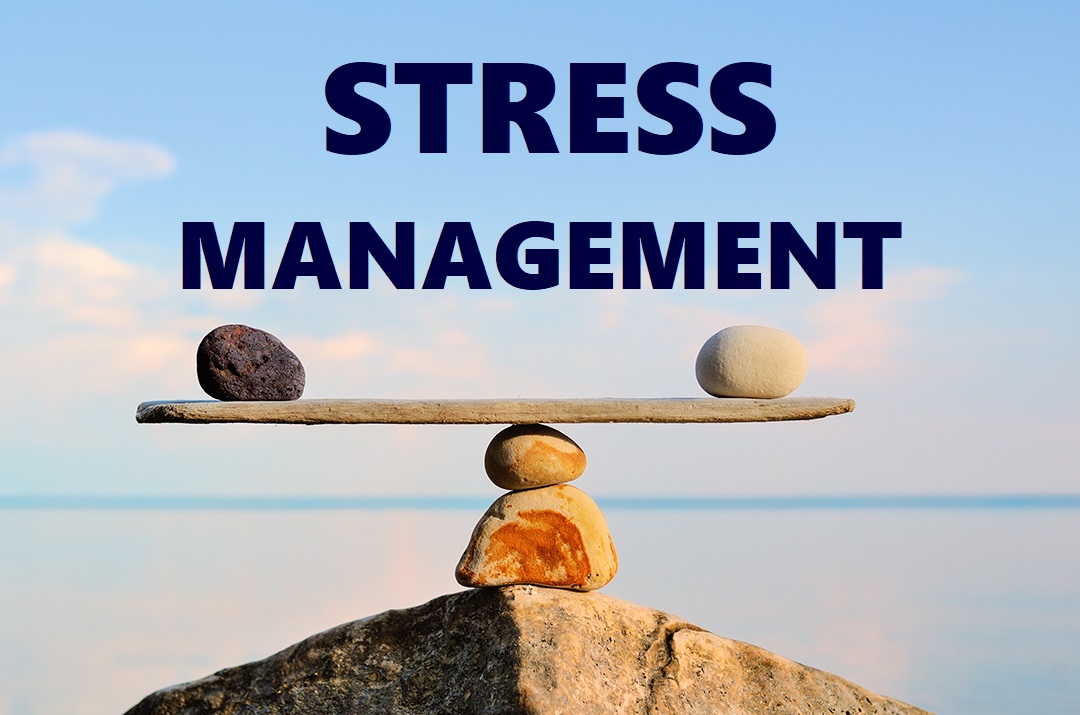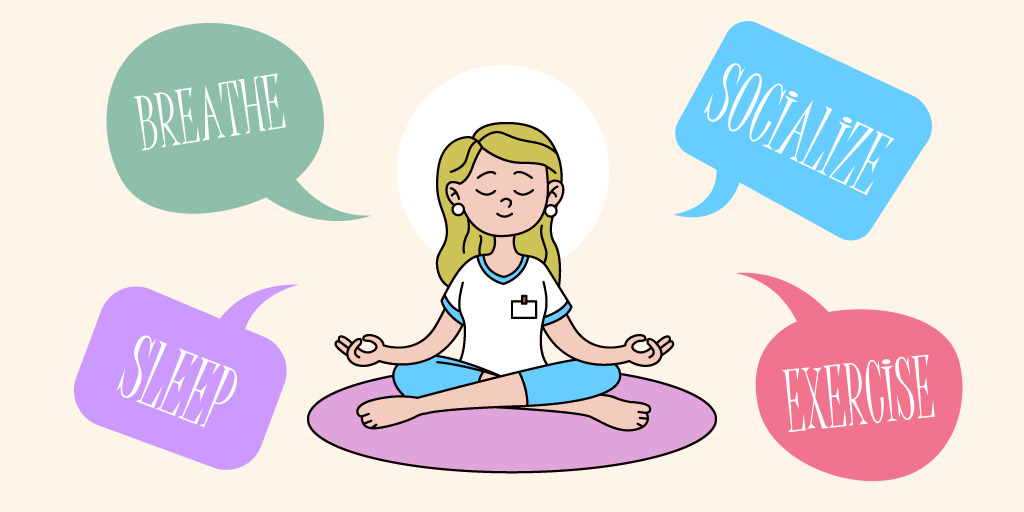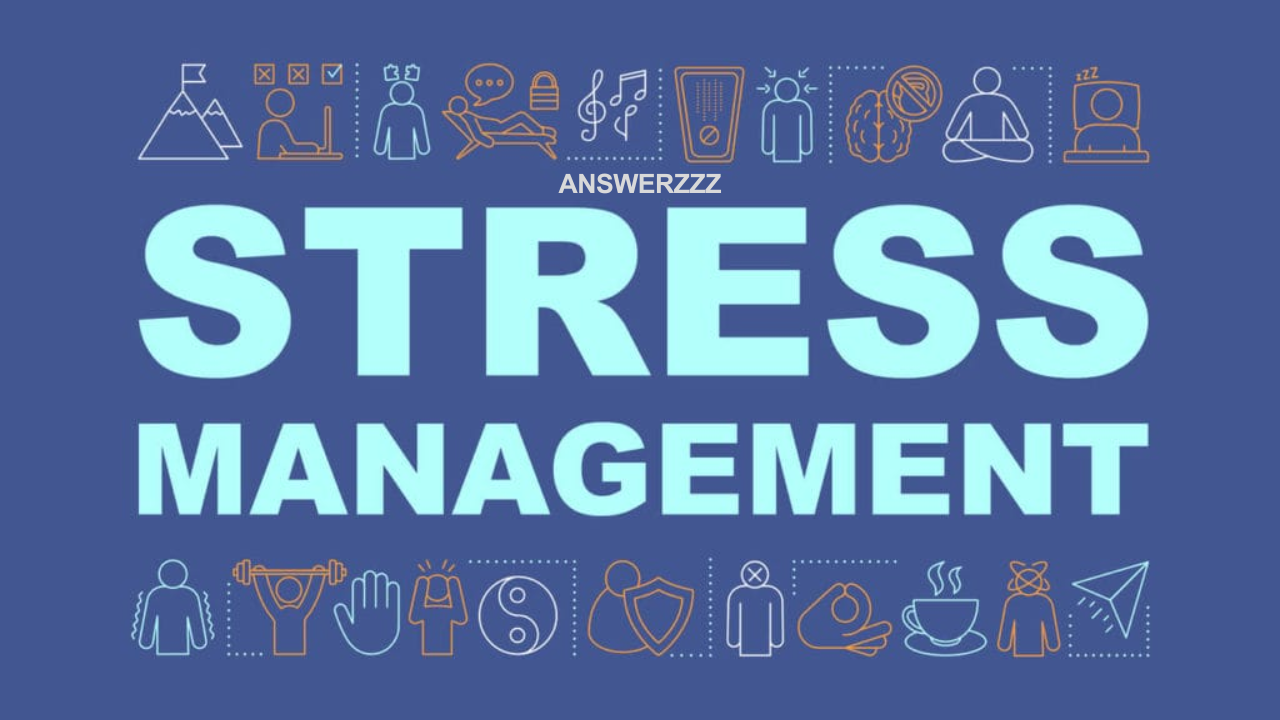Stress is an inevitable part of life, something everyone faces at some point or another. Whether it’s the pressures of work, relationships, financial worries, or personal expectations, stress can seep into our lives from multiple directions. While stress is a natural response to challenges, excessive or chronic stress can have a significant negative impact on our mental and physical health. It can lead to anxiety, depression, cardiovascular issues, sleep disturbances, and even affect our immune system. The good news is that stress, while unavoidable, is manageable. By implementing effective stress management techniques, we can improve our well-being and lead a healthier, more balanced life. In this article, we’ll explore various strategies that can help manage stress and restore harmony to both mind and body.
1. Understanding Stress
Before diving into the techniques, it’s crucial to understand what stress is and how it affects us. Stress is the body’s response to perceived threats or challenges, triggering a physiological reaction known as the “fight-or-flight” response. This response releases hormones such as cortisol and adrenaline, which prepare the body to face immediate danger. However, when stress becomes chronic, these hormones remain elevated, which can lead to a variety of health problems, including high blood pressure, weight gain, digestive issues, and even chronic fatigue.
While some level of stress is necessary for motivation and focus, prolonged stress can be detrimental. Identifying the sources of stress and learning how to cope with them is the first step in managing stress effectively.

2. Practicing Mindfulness and Meditation
One of the most effective ways to manage stress is through mindfulness and meditation. These practices help to ground you in the present moment, allowing you to detach from stressors and cultivate a sense of calm.
Mindfulness involves focusing on the present moment without judgment. It encourages an awareness of thoughts, feelings, and bodily sensations, allowing you to recognize stress before it escalates. By practicing mindfulness, you train your brain to become more aware of your stress triggers and develop a calmer, more balanced reaction.
Meditation, on the other hand, involves setting aside time to focus on your breath or repeating a mantra to calm your mind. Guided meditation can also be incredibly helpful, as it provides structure and focus during your practice. Studies have shown that regular meditation can lower cortisol levels, reduce anxiety, and improve overall well-being.
3. Physical Exercise
Exercise is one of the most powerful tools for reducing stress. When you engage in physical activity, your body releases endorphins—chemicals in the brain that act as natural mood boosters. These endorphins help reduce the intensity of stress and create a sense of well-being.
How Nutrition Affects Your Skin: Top Foods for a Glowing Complexion
Exercise also helps to reduce the physical effects of stress, such as muscle tension and elevated heart rate. Whether it’s a brisk walk, yoga, jogging, or lifting weights, any form of movement can be beneficial in managing stress. The key is to choose an activity that you enjoy, as you’re more likely to stick with it in the long run.
4. Proper Nutrition
What we eat plays a significant role in how we manage stress. A poor diet can exacerbate stress, while a balanced, nutrient-rich diet can help mitigate its effects. When stressed, people often reach for comfort foods high in sugar and unhealthy fats, which provide temporary relief but can worsen stress over time.
To manage stress, it’s essential to fuel your body with foods that support brain health and stabilize your mood. Focus on eating whole, unprocessed foods, such as fruits, vegetables, whole grains, lean proteins, and healthy fats. Foods rich in omega-3 fatty acids, such as salmon and walnuts, are known to support brain function and reduce inflammation, which is often triggered by chronic stress.
In addition to eating a healthy diet, staying hydrated is crucial for stress management. Dehydration can exacerbate stress, so it’s essential to drink enough water throughout the day.
5. Getting Enough Sleep
Sleep is often one of the first casualties when stress levels rise. However, poor sleep can significantly worsen stress, creating a vicious cycle. When we’re sleep-deprived, our bodies are less able to cope with stress effectively. Our mood is affected, our cognitive abilities are diminished, and we are more susceptible to anxiety and irritability.
To manage stress effectively, it’s essential to prioritize sleep. Aim for 7-9 hours of quality sleep each night. Creating a bedtime routine that promotes relaxation—such as avoiding screens before bed, limiting caffeine intake, and practicing deep breathing exercises—can help improve your sleep quality.
6. Time Management
Stress often arises from feeling overwhelmed, especially when we have too many tasks and not enough time. Effective time management can alleviate this stress and help us maintain a sense of control over our daily responsibilities.

One of the best ways to manage your time is by prioritizing tasks. Identify what’s most important and tackle those items first. Break larger tasks into smaller, more manageable steps, and avoid multitasking, as it can reduce your focus and increase stress. Using tools like calendars, to-do lists, and reminders can help you stay organized and reduce feelings of overwhelm.
Another critical component of time management is setting boundaries. Learning to say no to additional responsibilities or tasks that don’t align with your priorities is an important step in reducing stress. Give yourself permission to focus on your well-being rather than constantly overextending yourself.
7. Building a Support System
A strong support system is essential for managing stress. Having people you can turn to for emotional support, advice, or just a listening ear can make a significant difference in how you cope with stress.
Friends, family members, and colleagues can provide comfort and reassurance during stressful times. If you feel isolated or overwhelmed, don’t hesitate to reach out to others. Talking about your stressors can provide perspective and help you feel less burdened.
The Impact of Sleep on Mental Health: Why You Should Prioritize Rest
Additionally, seeking professional help through therapy or counseling can be incredibly beneficial. A mental health professional can teach you coping strategies and provide support as you navigate life’s challenges.
8. Deep Breathing and Relaxation Techniques
Deep breathing exercises are another powerful tool for reducing stress. When we’re stressed, our breathing tends to become shallow and rapid, which can exacerbate feelings of anxiety. Deep breathing, on the other hand, activates the parasympathetic nervous system, which promotes relaxation and reduces stress.
One simple technique is diaphragmatic breathing, where you inhale deeply through your nose, allowing your abdomen to rise, and then exhale slowly through your mouth. Practicing this for several minutes can lower heart rate, reduce muscle tension, and promote a sense of calm.
Other relaxation techniques, such as progressive muscle relaxation, where you systematically tense and relax different muscle groups, can also be effective for releasing physical tension associated with stress.

9. Hobbies and Leisure Activities
Engaging in hobbies and leisure activities that bring you joy can help reduce stress and improve your overall quality of life. When you’re stressed, it’s easy to forget to do things that make you happy, but finding time for fun and relaxation is essential.
Whether it’s painting, reading, gardening, knitting, or playing a musical instrument, participating in activities that allow you to unwind can be a powerful way to manage stress. These activities help shift your focus away from stressors and allow you to reconnect with yourself in a positive, fulfilling way.
10. Laughter and Humor
Laughter truly is the best medicine when it comes to managing stress. Studies have shown that laughter can reduce levels of cortisol and increase the production of endorphins. It can also improve your immune function and reduce pain perception.
Finding humor in everyday situations, watching a funny movie, or spending time with people who make you laugh can be incredibly beneficial for reducing stress. Laughter helps shift your mindset, improves mood, and provides a temporary escape from the challenges you’re facing.
Managing stress is a lifelong journey, not a one-time fix. By incorporating various stress management techniques into your daily routine, you can build resilience and foster a greater sense of well-being. Practices like mindfulness, physical exercise, proper nutrition, adequate sleep, and time management can all contribute to a healthier mind and body. Additionally, seeking support from loved ones and professionals, engaging in relaxation techniques, and pursuing hobbies can help you cope with life’s stressors in a balanced way. Remember, stress is a natural part of life, but how you respond to it can make all the difference in maintaining your mental and physical health.



